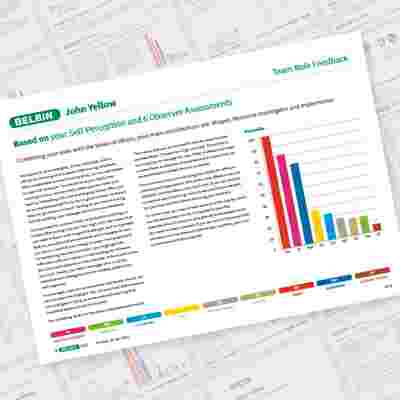Social, thinking and action
When you’re first getting to grips with Belbin, nine Team Roles – nine clusters of behaviour or ways of contributing to a team – can seem a lot to remember.
It can be helpful to break them down into groups of three that describe their primary focus: thinking, social and action roles.













